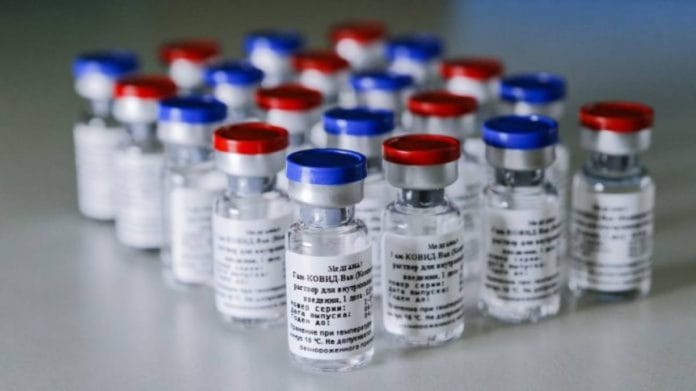New Delhi: The makers of Sputnik V and Sputnik Light, the Russian Covid-19 vaccines, have taken to social media to write about the “negative efficacy” of mRNA vaccines when it comes to fighting the Omicron variant.
Citing various pre-print papers, the official Twitter account for Sputnik V claims its vaccine produces longer efficacy compared to mRNA vaccines like Pfizer or Moderna.
Canadian real-world study of mRNA vaccines efficiency vs #Omicron shows negative efficacy of 2 mRNA doses and quickly waning efficiency of homologous #mRNA booster: “A third dose provides some protection in the immediate term, but substantially less than against #Delta.” pic.twitter.com/PEwREN2aHT
— Sputnik V (@sputnikvaccine) January 4, 2022
Pfizer’s quickly waning efficacy has been shown in numerous research papers. Sputnik Light #booster or another heterologous booster is needed to strengthen and lengthen #Pfizer vaccine response, particularly against #Omicron.
?https://t.co/rimBiZshpf
— Sputnik V (@sputnikvaccine) January 3, 2022
Another tweet attributes the rise in Covid-19 hospitalisations in the US to “low and quickly falling efficacy of current mRNA vaccines against Omicron.”
Major rise in US hospitalizations to 100,000 patients today due to low and quickly falling efficacy of current #mRNA vaccines against #Omicron. Heterologous booster by other vaccines is needed.https://t.co/etiAw2EyQC
— Sputnik V (@sputnikvaccine) January 3, 2022
The US Food and Drug Administration (US FDA) on 3 January shortened the time period between the second Pfizer vaccine dose and the booster from six months to five months, in light of emerging data that shows waning efficacy.
Citing data from various studies, including one done by the Israeli Ministry of Health, the US FDA said “the known and potential benefits” outweigh the risks when the booster dose is given after five months.
The statements from Sputnik makers come even as the efficacy of its vaccine against the Omicron variant is contested. A preliminary, not yet peer-reviewed study by the Gamaleya Institute — which developed the Sputnik vaccines — said in a statement last month that its vaccines produced a “robust” response to the Omicron variant.
“The study was conducted using sera with a long period after vaccination (more than 6 months after vaccination) as an indicator of Sputnik V’s long-lasting protection,” the Gamaleya Institute said.
However, another pre-print by researchers from the University of Washington and the Swiss drugmaker Humabs Biomed SA last month found that Sputnik V produced no neutralising activity against the Omicron variant, after looking at blood samples from healthcare workers in Buenos Aires, Argentina.
All vaccines available help reduce the risk of hospitalisation and severe disease.
The Russian Direct Investment Fund, which helped produce the Sputnik vaccines, said in a statement to ThePrint: “As Gamaleya Center had already noted in a statement on 15 December, the researchers deliberately selected weaker, non-representative Sputnik sera samples for their study. The majority of study’s authors (28 out of 49) are employees of Vir Biotechnology, a company developing a competitive product against COVID, raising questions about a conflict of interest.”
Also read: Omicron cases less severe than other waves, hospitalisation rate lower, shows study in Lancet
Viral vector vaccine versus mRNA
Sputnik V is a viral vector vaccine, which means it uses a modified, harmless version of the SARS-CoV-2 to trigger an immune response. Sputnik V is given in two doses. Sputnik Light is also a viral vector vaccine given in just one dose.
The Pfizer and Moderna Covid-19 vaccines use mRNA, or messenger RNA. According to the Mayo Clinic, mRNA vaccines use “genetically engineered mRNA to give your cells instructions for how to make the S protein found on the surface of the COVID-19 virus,” which then triggers an immune response. The mRNA breaks down after completing this task which prevents infection.
This report has been updated to add a statement by the Russian Direct Investment Fund.
Also read: Omicron infection may reduce risk from Delta variant too, South African study shows






